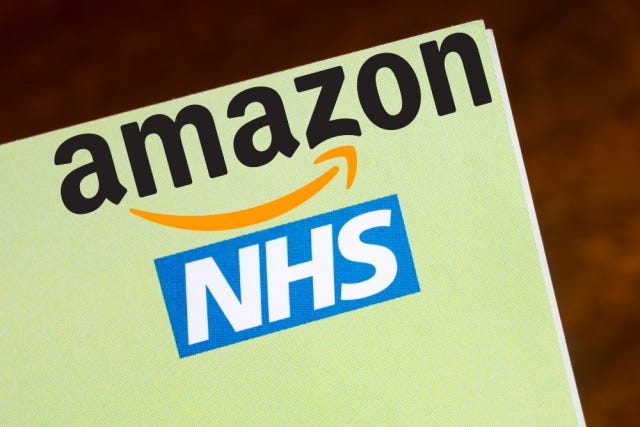National Healthcare Services (NHS) is the English public medical system (hospitals, clinics), a kind of ‘Medicare for all’ that makes English people healthy.

Debate about NHS data is all the rage across the UK, fueled by rumours of privatization of the NHS to American insurances companies, as part of a UK-US trade deal.


My view on this topic is simple: NHS data should be freely accessible to anyone, anywhere (after anonymization).
- Selling NHS data is not only wrong, it’s also an inconsistent position: The UK is already investing billions of pounds in public medical research, giving away scientific results for free.
- Debate focuses on big tech (Amazon, Google), but ignores that small tech and startups are disproportionately affected by hurdles in data access (I am a small tech entrepreneur myself). Closed NHS data reinforces big tech power, and damages startup ecosystems.
The UK is already giving away bio-medical data for free through public research
The UK is one of the world leaders in public bio-medical research. Few countries have the budget to produce world-class medical research like the UK. This research is freely used by the private industry around the world, including big techs and big pharmas, even if this research was very expensive for British taxpayers.
Why is the UK doing this amazing gift to the industry? Because the British people consider that free and public research is the best way to maximize their return of investment, in terms of new medical treatments for patients around the world, including British patients. They put British patients first.
Many radical advocates of regulation don’t support regulating the flow of public research data. Instead, they argue for price regulation downstream, like Congresswoman Alexandria Ocasio-Cortez in the United States. This price regulation already exists in the UK.
On the other hand, to be self-consistent, people advocating for selling NHS data should also argue for ending public medical research. They should support transition to a secretive activity, akin to military research. Public research institutions would restrict access to their data and papers, instead of posting them to public repositories like Arxiv and Biorxiv, and to public databases like ChEMBL.

Public military research is secretive, but not medical research
This transition to secrecy would certainly stifle innovation, let more British patients suffer and die (because their cures have simply not been invented yet), although Silicon Valley would no longer exploit British NHS data. Given the militaristic tone of some transatlantic debates about data and AI, I won’t be surprised if some British people adopt this position (although it is quite absurd to me).
Let’s ask Lord Baron Drayson, Saira Ghafur, James Meadway, Sam Smith, Pamela Spence, or Alan Winters, who all support restricting access to NHS data (click on their names to see their views), what do they think about it?
Small Tech matters
Small tech and startups don’t have the resources to go through the hurdles of accessing privately held data. They are affected the most by additional costs and red tape.
I will share my personal experience as a small tech entrepreneur: I wanted to access NHS clinico-genomic data about cancer, a disease which seemed to be a top priority for the NHS in England. I had to fill various forms, schedule phone calls, to be told at the end that the exact type of data I wanted did not exist yet. Moreover, I was told to pay money to access the lower-quality data that was available in-store. A quite complicated “data shopping” experience.

So I gave up this project, and turned my attention to alternative datasets, that can be easily downloaded with one click. A good thing about healthcare is that a lot of free databases are widely available, made by various public institutions (EMBL, NIH…). These opportunities facilitate bootstrapping small data startups (by simply using public datasets).
Of course, if I had money to hire a specialized brigade of bureaucrats, they would battle with NHS-affiliated bureaucrats on the other side, and pull the data out. I guess that’s how Amazon and Google put their hands on NHS data, at no cost.

Amazon hired better bureaucrats and accessed NHS data for free
The proposed solution of putting barriers to NHS data is counter-productive, because these barriers actually protect Amazon and Google from competition by small startups. It turns data access into a financial and bureaucratic game, at which big corporations play better.
What should be done instead?
A better attitude would be to:
- Stimulate the emerging ecosystem around NHS data, by facilitating private investment in small tech (for example, British families often invest their savings in real-estate, but seldom in health-tech), so that next big techs come from the UK, and not only from the Silicon Valley. The UK should avoid the temptation of brutal repression, with data taxation and dumb regulation.
- Apply tough penalties to misuses of data, from tech or insurance companies. No one should be discriminated against based on their healthcare features. Anti-discrimination legislation should be extended to medical conditions, so that abusing data for bad purposes carries consequences.
Initially appeared on Medium.
Update: Saira Ghafur changed her position, and now advocates for ’maximising the impact of NHS data‘.